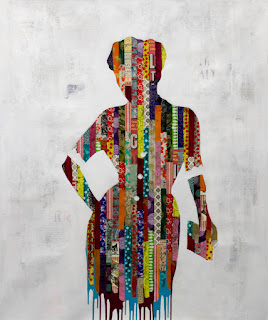When it comes to painting, inspiration can be hard to come
by. But don’t worry, we’ve got you covered. In this post, visual artist Ari
Glass will explore a few different ways to get inspired for your next abstract
painting. We’ll start with one easy way to get started and work our way up from
there.
Choose your painting medium
Before getting started, it’s important to choose the right
painting medium. There are a variety of different mediums that can be used for
abstract paintings, and you don’t want to waste your time or money on something
that won’t result in great results.
One option is to use acrylic paint. Acrylic paint is easy to
work with and has a smooth finish. It's also a great choice if you're new to
painting. Another option is watercolor. Watercolor is a popular painting medium
because it's affordable and easy to use. You can use watercolor to create many
different shades of color, which will give your abstract paintings a unique
look, explains Seattle-based artist Ari Glass.
Find a good starting point
When it comes to getting started with abstract painting,
there are a few things you can do. The first is to find a good starting point.
This means finding inspiration for your paintings in familiar or well-known art
styles. You can also look at famous artists and study their work to get ideas
for your own paintings.
Get started with simple shapes
One of the best ways to get started with painting is to
start with simple shapes. This means that you don’t have to go too crazy with
your colors or details, and you can focus on the overall composition of the
painting. According to Ari Glass, this will help you to gain a better
understanding of how painting should be done.
Work in different directions to get creative
When it comes to painting, it’s important to be creative.
You can use any method you like to get creative, but it’s important to start
with something that will help you achieve your goals. When you work in
different directions, you’ll be able to achieve a much more successful outcome.


